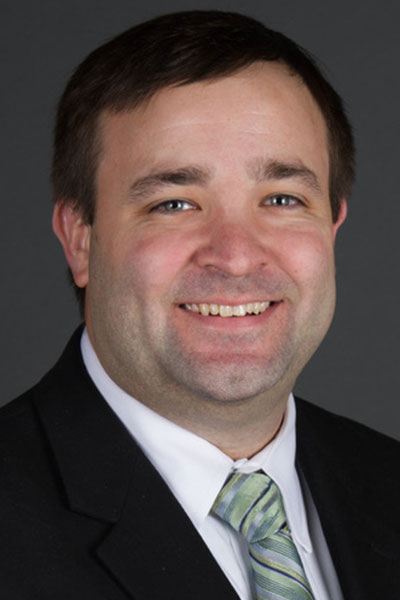
Growing evidence in multiple phenotypes of progressive fibrosing interstitial lung diseases has prompted new recognition that idiopathic pulmonary fibrosis (IPF) accounts for only about one-third of all individuals with progressive pulmonary scarring. A new term, progressive pulmonary fibrosis (PPF), covers the other two-thirds of patients with progressive fibrosis of the lungs that does not meet the criteria for IPF.
“The push is to recognize that there are many different types of scarring lung diseases that worsen over time with progressing risk for morbidity and mortality,” said Brad Bemiss, MD, associate professor of pulmonary and critical care medicine at Loyola University Medical Center. “IPF has had defined treatments for the last 6 years, but that left a very big hole in our ability to treat other patients that have progressive fibrotic lung disease that is not IPF. This newly named disease entity, PPF, helps us recognize it earlier and begin management earlier, before patients lose crucial lung function.”
Dr. Bemiss will chair Gathering Together: Recognition and Treatment of Progressive Fibrotic Interstitial Lung Disease, on Sunday, October 16, from 8:00 AM – 9:00 AM CT, in Room 209A. Presenters will explore the current data on prevalence and diagnosis of PPF, management and treatment decisions, and what is known of genetics and biomarkers.
One of the barriers to recognizing and managing PPF is the wide range of phenotypes included in the new definition. Hypersensitivity pneumonitis, rheumatoid arthritis-related ILD, scleroderma-related ILD, sarcoidosis, and more can all be classified as PPF, Dr. Bemiss said.
Similarly, primary care physicians, pulmonologists, radiologists, pathologists, rheumatologists, and other clinicians may all be involved in some aspect of diagnosis or treatment of PPF. CHEST recently launched a new collaborative with Three Lakes Foundation, called Bridging Specialties™: Timely Diagnosis for ILD Patients, to leverage the combined strengths of multiple specialties to shorten the time to diagnose PPF and other interstitial lung diseases.
“All of these progressing interstitial lung diseases bridge multiple specialties,” Dr. Bemiss said. “The Bridging Specialties initiative is aimed at bringing broader recognition of this to help pulmonologists, radiologists, pathologists, [primary care clinicians], and others to bring a multidisciplinary approach to the recognition and treatment of this newly characterized progressive pulmonary fibrosing disease state.”
Bringing multiple diseases under a single umbrella does not change the baseline treatment approaches clinicians currently use, he said. What it does is help expand attention to recent trial results such as INBUILD, which confirmed safety and efficacy of nintedanib in slowing the progression of pulmonary fibrosis.
The trial included patients with a variety of fibrosing ILD phenotypes other than IPF that had progressed within the prior 24 months despite management as deemed appropriate in clinical practice.
Progressing COVID-related pulmonary fibrosis also falls under the PPF umbrella and could fit the INBUILD patient cohort profile.
“We are seeing more cases of people who have had COVID developing pulmonary fibrosis of all types,” Dr. Bemiss said. “If someone has scarring lung disease after COVID, and that disease is progressing, [it] would be classified as progressive pulmonary fibrosis and potentially treated in a very similar way.”
A recent guideline update from the American Thoracic Society, European Respiratory Society, Japanese Respiratory Society, and Asociación Latinoamericana de Tórax includes recognition and definition of PPF, he said. The update has a conditional recommendation for nintedanib to treat PPF in adults and calls for additional research into pirfenidone.
“This is our new baseline for PPF,” Dr. Bemiss said. “The real question is what comes next; how do we grow new research and new applications for existing drugs? We have to broaden the treatments for PPF.”
Join us at CHEST 2025
Save the date for the next Annual Meeting, October 19 to 22, 2025, in Chicago. CHEST 2025 will explore the latest advancements in pulmonary, critical care, and sleep medicine, with a focus on innovation and the future, just as the city itself embodies progress and reinvention.





